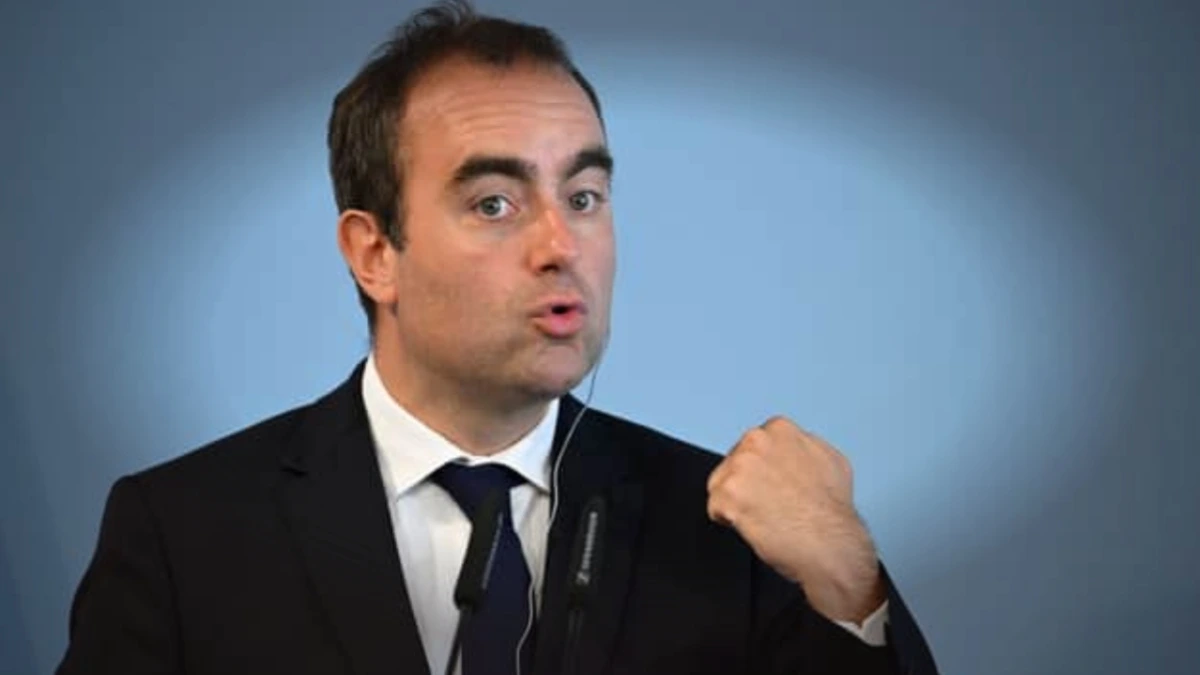PARIS — France plunged deeper into political uncertainty Monday after Prime Minister Sébastien Lecornu resigned just 14 hours after naming his cabinet, marking the third failed attempt by President Emmanuel Macron to stabilize his government this year.
The abrupt departure underscores Macron’s waning influence and growing difficulties in securing parliamentary backing, particularly from the conservative Republicans party, whose withdrawal from coalition talks triggered the latest collapse.
Political observers say the turmoil signals the twilight of Macron’s centrist project as factions prepare for the 2027 presidential election.
Lecornu, 39, was appointed three and a half weeks ago as Macron’s “last card” a loyal protégé tasked with forging a fragile alliance across France’s fractured center right bloc.
His mandate was clear: form a functional coalition in a hung parliament where no party holds an outright majority. Yet by Monday morning, his fledgling government had already disintegrated.
The immediate rupture came when LR leader and Interior Minister Bruno Retailleau announced his party would not join the cabinet, citing Lecornu’s decision to name former finance minister Bruno Le Maire as defense chief without prior consultation.
Trust is essential in coalition building, Retailleau said in a televised statement. “Learning of key appointments through television broadcasts is unacceptable.”
The fallout left Lecornu isolated, forcing him to tender his resignation before he could deliver his inaugural address to the National Assembly.
Analysts say the episode reflects deeper structural challenges facing Macron’s second term, which has been plagued by political gridlock since the 2022 legislative elections.
“This isn’t just about one failed prime minister,” said Dr. Hélène Dupont, a political scientist at Sciences Po. “It’s about the erosion of Macron’s authority and the fragmentation of the political center he once dominated.”
Dupont added that Lecornu’s rapid downfall highlights “the impossibility of governing through compromise when every faction is already positioning for the post-Macron era.”
Veteran commentator Jean Luc Vasseur described the crisis as “a symptom of a broader realignment.” He said, “The traditional left is weak, the far right is strong, and Macron’s centrists are losing allies. France is entering uncharted territory.”
Macron’s predicament mirrors earlier instability in France’s Fifth Republic, but few governments have collapsed so swiftly. Lecornu’s 14 hour tenure is among the shortest in modern French history.
His predecessors, Michel Barnier and François Bayrou, both resigned after weeks of political stalemate but managed to govern briefly.
According to an IFOP poll published last week, Macron’s approval rating has fallen to 22%, its lowest since 2018. Public confidence in government institutions has also dipped, with 63% of respondents saying they believe “France is politically ungovernable.”
Comparatively, France’s political volatility contrasts with neighboring Germany, where coalition governments are more stable despite ideological divides.
Experts attribute this to France’s hyper presidential system, which concentrates power and blame in the executive.
Across France, citizens expressed frustration with the political impasse. “It feels like we’re stuck in a loop,” said Marie Lambert, a Paris café owner. “Every few weeks there’s a new prime minister, and nothing changes. People are losing faith.”
In Lyon, civil servant Pierre Morel said the crisis reflects “a government disconnected from ordinary people.” He added, “While they fight over ministries, the cost of living keeps rising.”
Others urged patience. “France has weathered crises before,” said retired teacher Sylvie Gautier. “But leaders must start listening to voters instead of playing political games.”
Macron granted Lecornu a temporary 48-hour reprieve to renegotiate terms with LR, but insiders doubt a workable coalition can be salvaged.
Even if a compromise emerges, analysts warn any new government would be fragile. “No prime minister can succeed without parliamentary legitimacy,” said Dupont. “And Macron’s brand is now toxic ahead of 2027.”
Several figures within Macron’s camp, including former prime minister Gabriel Attal, are reportedly distancing themselves in preparation for post Macron politics.
The far-right National Rally (RN), led by Marine Le Pen, continues to gain traction. A recent Harris Interactive poll shows RN leading with 32% support, compared with 18% for Macron’s Renaissance party.
As France inches toward the next presidential race, the political vacuum could accelerate realignment across the spectrum, with parties recalibrating alliances to capture disillusioned voters.
Sébastien Lecornu’s resignation the third in under a year underscores the deepening instability at the heart of Macron’s presidency.
With coalition talks in disarray and public confidence waning, France faces an uncertain path toward 2027.
Each failed government chips away at Macron’s authority, raising fundamental questions about whether his centrist experiment can endure in a polarized political landscape.
As one Elysee Palace aide put it privately, “The era of Macronism may not be over, but its final chapter has begun.”
